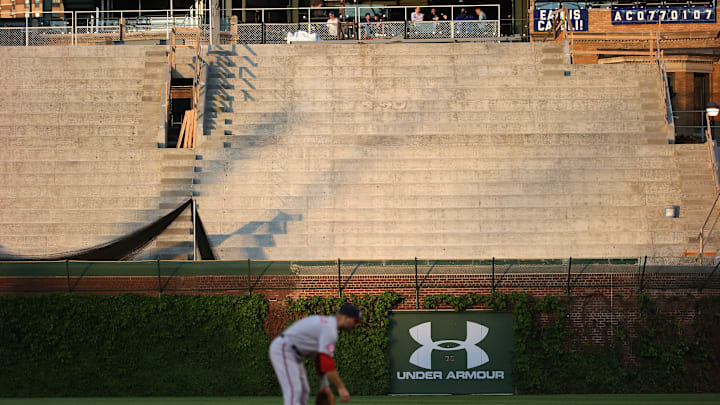October 2014. Bulldozers and excavators rolled down Waveland and Sheffield Avenues and began tearing down the Wrigley Field bleachers. The demolition and rebuilding of the bleachers was the first part of the massive multi-year 1060 Project renovation plan. This project began after several years of the Ricketts family battling the neighborhood over the proposed project. Both the stadium and the team itself were getting a facelift, leading to greater things.
It might have shocked some non-Cubs/casual baseball fans to see what they thought was a historic element of the century-old ballpark getting ripped down. However, the historic ivy-covered walls and scoreboard stood untouched, as they are both part of the park's landmark status. The bleachers that got demolished were not even all that historic. The left and right field sections being renovated were built in 2005-2006; the seats that stood for many decades going back to 1937 were gone, outside the centerfield section above the batter's eye. So what was being torn down had not even been in place for a decade.
While the shape of the new bleachers would not be all that different from the 2005-2006 bleachers, there would be a few notable changes. The capacity would be increased by 300 with more amenities and space for fans behind the seating area. Most notably, it included erecting a pair of new video boards. A century of Wrigley Field not having replay and other video content for the masses (outside a small digital board added before the 2012 season in the right field well area) was nearing an end. The start of the 2025 season will mark a decade of having the video boards in place.
As the frames of the new bleachers began to be put in place over the coming months, an issue arose. The bleachers would not be ready for Opening Night, 2015. Delays and a tough Chicago winter threw wrenches in the team's first renovation phase. The Cubs would eventually begin the 2015 season with no fans in the unfinished outfield seats. By mid-season, the bleachers would be completed and the young rejuvenated Cubs would win 97 games and make a surprise run to the NLCS.
